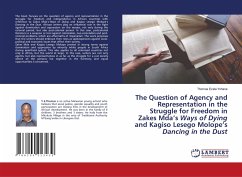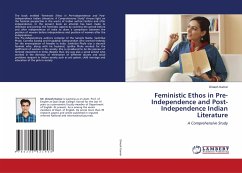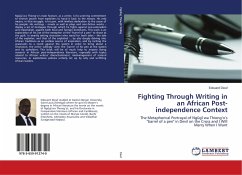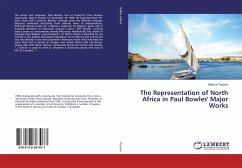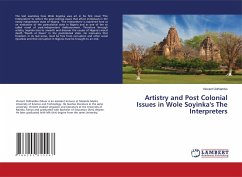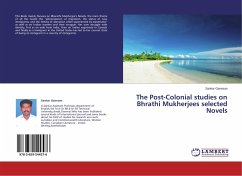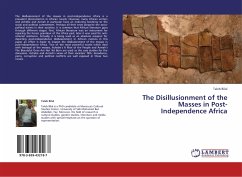
The Disillusionment of the Masses in Post-Independence Africa
Versandkostenfrei!
Versandfertig in 6-10 Tagen
27,99 €
inkl. MwSt.

PAYBACK Punkte
14 °P sammeln!
The disillusionment of the masses in post-independence Africa is a prevalent phenomenon in African novels. However, many African writers and Achebe and Armah in particular have an enduring tendency to the social and political commitment. Perhaps all their texts pinpoint the socio-political events in their societies. It is common that African literature goes through different stages. First, African literature was an instrument for rejoicing the heroic grandeur of the Africa past; later it was used for anti-colonial resistance. Actually, it is being used as an absolute weapon for depicting post-...
The disillusionment of the masses in post-independence Africa is a prevalent phenomenon in African novels. However, many African writers and Achebe and Armah in particular have an enduring tendency to the social and political commitment. Perhaps all their texts pinpoint the socio-political events in their societies. It is common that African literature goes through different stages. First, African literature was an instrument for rejoicing the heroic grandeur of the Africa past; later it was used for anti-colonial resistance. Actually, it is being used as an absolute weapon for depicting post-independence disillusionment in African nations. In this paper an effort is made to inspect the disillusionment of the masses in post-independence Africa. Two of the most powerful novels which deal with betrayal of the masses, Achebe's A Man of the People and Armah's The Beautyful Ones Are Not Yet Born are used as the case studies for the discussion. Achebe and Armah's views of their societies' filth, decadence, pains, corruption and political conflicts are well exposed in these two novels.



